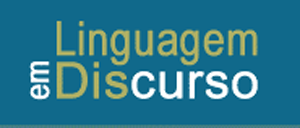Abstract
This article is based on Street (1984; 2003), Scribner and Cole (1991), Kleiman (1995; 2014), Cavalcante Jr. (2003), Buzato (2003; 2007), Ribeiro (2006), Xavier (2011) and Borges (2017). It aims to describe and analyze the digital literacy practices of students from elementary school. It is developed in Portuguese language classes which take place in a computer lab in order to identify the literacy model and digital literacy design that underlies those practices. To do so, we carried out a case study, using the following data construction tools/techniques: (i) questionnaire applied to professionals gathered in a computer lab; (ii) observation of Portuguese language classes held in a computer lab; (iii) interview with students. Most of the results show that digital literacy practices undertaken by students in the surveyed schools, have a concept of literacy, considering writing the anchor of these practices, based on an autonomous model of literacy.
Keywords:
Digital technologies; Digital literacy; Models of literacy







